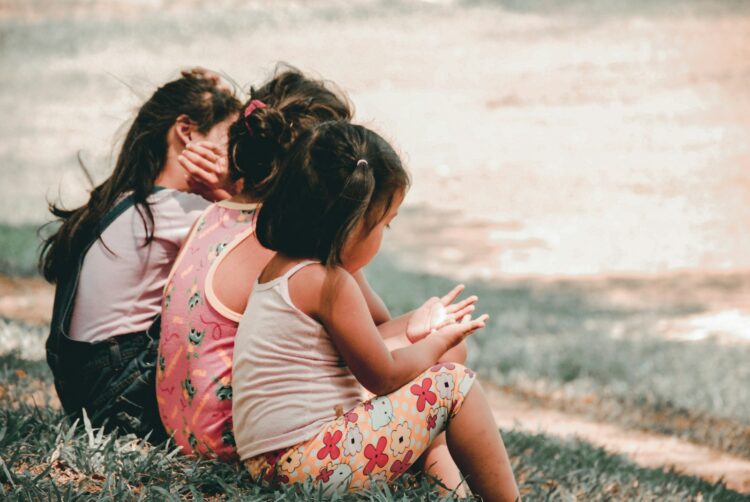
We all like to believe we’re above judging others, but the truth is that everyone does it to some extent. Whether it’s subtle or overt, people make assumptions based on the tiniest details. Often, these judgments say more about the person doing the judging than the one being judged. Here are 15 of the most common things people quietly (or not so quietly) judge each other for, and why it’s worth reflecting on them.
How They Dress

First impressions are powerful, and clothing plays a huge role. Whether someone shows up in designer labels, gym wear, or a secondhand find, people notice—and judge. A well-dressed person is often assumed to be competent and successful, while someone in worn or mismatched clothes may be seen as lazy or careless. Ironically, people also judge others for trying “too hard” or being “too polished.” The reality? Style is personal.
How They Speak

Tone, grammar, vocabulary, and accent all influence how people perceive you. Someone who speaks confidently with a wide vocabulary may be viewed as intelligent or cultured, while someone who mumbles, uses slang, or has a strong regional accent might be judged as uneducated or unrefined. Even filler words like “like” or “um” can spark criticism. Yet, speech patterns are often rooted in background, upbringing, or even trauma.
Their Job or Income

Wealth is often equated with worth, and it’s not uncommon for people to judge others based on their job title or how much money they appear to make. Someone working as a barista might be seen as less ambitious than someone in tech or finance. A stay-at-home parent might be underestimated entirely. These judgments ignore the complexity of career paths, life choices, and values.
How They Spend Money

People notice spending habits: who’s frugal, who’s flashy, who always splits the bill, and who doesn’t. Someone who treats themselves to luxuries might be labeled wasteful or superficial, while someone who clips coupons could be seen as stingy or overly cautious. But no one knows the full financial picture. Some people spend freely because they’re financially secure. Others do it to feel good, or to impress.
What They Eat

Food choices are surprisingly judgmental territory. Vegans are accused of being preachy. Meat-eaters get criticized for cruelty. Someone who eats fast food may be labeled unhealthy, while someone on a strict diet might be seen as obsessive or joyless. Even how much someone eats, or doesn’t, gets picked apart. Cultural norms, health issues, or ethical beliefs all shape eating habits, yet people act like there’s a “right” way to dine.
How They Parent (or Don’t)

Whether it’s breastfeeding versus bottle feeding, public tantrums, screen time, or homeschooling, parenting decisions draw constant scrutiny. People are quick to label others as neglectful, controlling, overprotective, or clueless. And those who choose not to have kids? They get judged too—for being selfish, immature, or cold. Everyone has an opinion, but few understand the full picture behind someone’s choices. Parenting isn’t one-size-fits-all.
Their Home or Living Situation

Size, location, cleanliness, and even decor become measuring sticks for social standing. A big house in a fancy neighborhood is admired, even envied, while a small apartment or shared living space might be dismissed. People judge messy homes as signs of laziness or disorder. Minimalism can be seen as elegant or cold. The truth is, housing is complicated. People live where they can afford, where they feel safe, or where their lives have placed them.
How They Handle Conflict

People notice how others behave under pressure. Someone who yells or cries during conflict may be viewed as unstable or dramatic. Someone who stays calm might be called cold or manipulative. Conflict style is deeply tied to upbringing, personality, and emotional coping mechanisms. Yet people often think there’s only one “mature” way to argue, and anyone who deviates gets judged.
Who They Date (or Marry)

Romantic choices are constant judgment territory. Whether it’s age differences, racial backgrounds, income gaps, or same-sex partnerships, someone always has something to say. People assume ulterior motives, fetishization, or desperation when couples don’t fit expected molds. Even those who are happily single get side-eyed or pitied. Love and partnership are very personal, shaped by chemistry, timing, and shared values.
How They Look Without Trying

In a world driven by image, appearance still trumps substance in many social circles. People are judged for weight, grooming, skin, fashion choices, and even how tired they look. Someone who “lets themselves go” might be labeled lazy. Someone who’s effortlessly attractive might be called shallow or lucky. But appearance doesn’t reveal discipline, intelligence, or kindness. Health issues, stress, and genetics play huge roles in how people look.
How They Spend Their Free Time

People make assumptions about hobbies, too. If you read, you’re seen as smart. If you game, you’re immature. If you watch reality TV, you’re shallow. If you hike every weekend, you must be balanced. Leisure time becomes a symbol of character, even though everyone relaxes differently. Some find joy in routine. Others seek adrenaline or escapism. But society still treats certain pastimes as “better” than others.
Their Beliefs or Politics

It’s no secret that political and spiritual views can become social minefields. People assume things about your intelligence, compassion, and even morality based on a single statement or affiliation. Someone’s entire identity can be reduced to one vote or opinion. In a polarized world, nuance is often lost. While values matter, judging someone without understanding the context behind their beliefs reduces complex people into one-dimensional caricatures.
Their Mental Health

People say they support mental health until someone visibly struggles with it. Then come the whispers, the distance, the doubt. Anxiety, depression, ADHD, or trauma often come with stigma—especially when they affect behavior or reliability. Someone who cancels plans too often or seems emotionally flat may be labeled flaky or rude. Others might say, “They’re just looking for attention.” Even in a more open world, mental health still prompts judgment.
How They Look When They’re Struggling

When someone’s going through a hard time, people often judge how they carry it. Are they too emotional? Too quiet? Are they pretending to be fine? People expect grief, illness, or crisis to look a certain way. Someone who holds it together is admired—or doubted. Someone who breaks down publicly is pitied—or ridiculed. But everyone struggles differently. Some get louder. Some get still. Judging someone for how they process pain adds pressure to an already hard moment.
Their Past

Perhaps the harshest judgment comes from what people used to be. An old mistake, a youthful phase, or a bad relationship can follow someone for years—even if they’ve changed. People are slow to believe in transformation. They remember the version of you that disappointed them, not the one that worked to grow. We judge people by their past while hoping others will see us for who we are today. It’s a double standard most of us hold.

